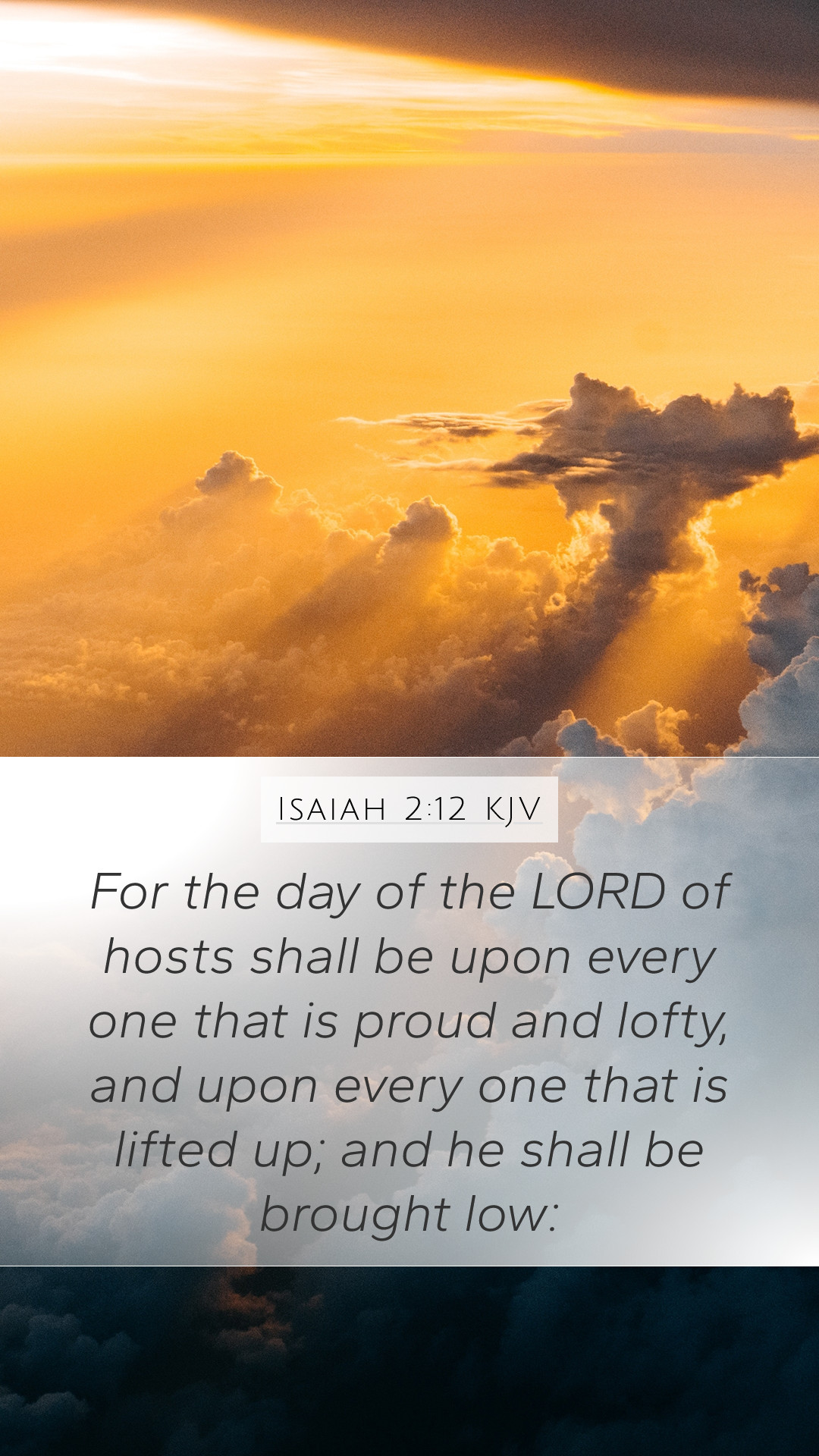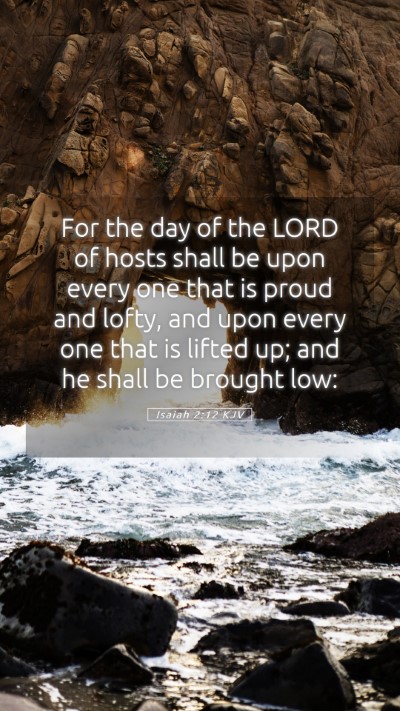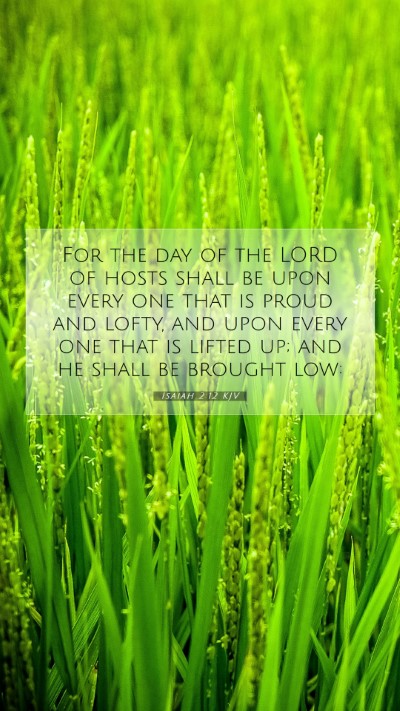Understanding Isaiah 2:12
Isaiah 2:12 states: "For the day of the LORD of hosts shall be upon every one that is proud and lofty, and upon every one that is lifted up; and he shall be brought low." This verse pertains to a proclamation of divine judgment that addresses the arrogance of humanity in the face of God's sovereignty.
Overview of Biblical Context
This verse is nestled within the prophetic visions of Isaiah, primarily focusing on the impending judgment that God will unleash upon the proud and lofty. The entire chapter paints a picture of the future where God's kingdom is established, and all human pride is brought to nothing. The overarching theme is a contrast between human arrogance and divine authority.
Commentary Insights
-
Matthew Henry's Commentary:
Henry interprets this verse as a straightforward warning against pride. He emphasizes that God resists the proud but gives grace to the humble. The "day of the LORD" refers to an appointed time of retribution against those who exult themselves above God's commands.
-
Albert Barnes' Commentary:
Barnes elaborates on the symbolism of pride and how it leads to judgment. He notes that the terms "proud" and "lofty" symbolize those in positions of power who oppress others and exhibit sinful arrogance. The ultimate fall of such individuals underscores the moral order established by God.
-
Adam Clarke's Commentary:
Clarke provides a historical perspective, relating the verse to the condition of the nations during Isaiah's time. He asserts that God will bring low those nations that do not acknowledge His sovereignty. He stresses that humility is integral to a right relationship with God, and pride will lead to downfall.
In-depth Analysis of Key Themes
1. Divine Judgment
The notion of the "day of the LORD" encapsulates a significant theme throughout the Scriptures. It serves as a day of reckoning where God's justice prevails, emphasizing that nothing escapes His notice. This judgment is inclusive, affecting not just individuals but nations that indulge in prideful conduct.
2. Pride and Humility
Isaiah 2:12 illustrates the dichotomy between pride and humility. Scripture often underscores that pride leads to one's downfall. This principle is echoed across various passages, urging believers to cultivate a spirit of humility and dependence on God rather than self-sufficiency.
3. Assurance of God's Sovereignty
This verse reassures believers of God's ultimate control over the affairs of mankind. It is a promise that, regardless of human arrogance, God's righteousness will ultimately triumph. This assurance gives hope to those who feel oppressed or belittled by the proud.
Applications for Modern Readers
In today's context, Isaiah 2:12 serves as a vital reminder for personal introspection. Believers are encouraged to evaluate their hearts and actions to ensure they do not harbor pride. The lesson transcends individual application, extending to how communities and nations acknowledge God's authority.
Cross References
- Proverbs 16:18: "Pride goes before destruction, and a haughty spirit before a fall."
- James 4:6: "But he gives more grace. Therefore, it says, 'God opposes the proud, but gives grace to the humble.'
- 1 Peter 5:5: "Likewise, you who are younger, be subject to the elders. Clothe yourselves, all of you, with humility toward one another, for 'God opposes the proud but gives grace to the humble.'
Conclusion
Understanding Isaiah 2:12 equips believers with profound insights regarding the nature of pride and the necessity of humility. This verse, accompanied by comprehensive biblical commentary, serves not only as a warning but also as an invitation to embrace a godly stance of humility before the Lord. As believers engage in bible study individually or in bible study groups, they can reflect on how this passage speaks to their lives today.
As we further explore bible verse meanings, this passage stands as a reminder of the ultimate accountability human beings have toward their Creator.


